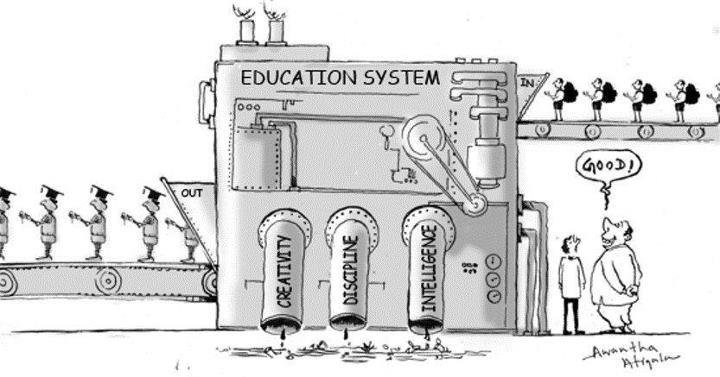The education system, as we know it, is often a reflection of the values and priorities of the society in which it exists. For decades, it has been the foundation upon which individuals build their knowledge, skills, and future. However, as the world rapidly changes, it’s becoming increasingly clear that the traditional education system needs to evolve to better meet the needs of today’s learners and tomorrow’s challenges.
The Current Paradigm: A System of Conformity
Our current education system largely operates on a one-size-fits-all model, focusing heavily on standardized testing, rigid curricula, and a uniform approach to learning. This model often emphasizes memorization over critical thinking, conformity over creativity, and competition over collaboration. While this approach has its merits, particularly in creating a baseline of knowledge for all students, it falls short in nurturing the unique talents and passions of each individual.
Standardized testing, for instance, has become a central pillar of the education system. While it provides a measurable way to assess student performance, it often reduces learning to a series of metrics and numbers. Students are frequently judged by their ability to recall information rather than their capacity to apply knowledge in real-world contexts. This has led to a system where success is often equated with high test scores, rather than a deep understanding of the subject matter or the development of critical life skills.
The Need for Holistic Education
In a rapidly evolving world, where technology is reshaping industries and the future of work, the traditional education model must adapt to foster not just intellectual growth but also emotional, social, and ethical development. Holistic education, which emphasizes the development of the whole person, is essential in preparing students for the complexities of modern life.
Holistic education goes beyond academics. It integrates intellectual, emotional, social, physical, artistic, and spiritual development. This approach recognizes that each student is a unique individual with their own set of strengths, interests, and learning styles. By fostering a love for learning, encouraging critical thinking, and promoting creativity, holistic education helps students become well-rounded individuals who are not just equipped to succeed in their careers, but also in life.
Embracing Technology and Innovation
The integration of technology into the classroom has the potential to revolutionize education. With the advent of online learning platforms, virtual classrooms, and educational apps, students now have access to a wealth of information and resources at their fingertips. Technology can personalize learning experiences, catering to the individual needs of students and allowing them to learn at their own pace.
Moreover, technology can help bridge the gap between theoretical knowledge and practical application. Interactive simulations, virtual labs, and gamified learning experiences can make complex concepts more accessible and engaging. However, it’s crucial that technology is used as a tool to enhance learning, rather than as a replacement for traditional teaching methods. The human element – the guidance, support, and mentorship provided by educators – remains irreplaceable.
The Role of Educators: Facilitators of Learning
In a reimagined education system, the role of educators would shift from being the primary source of knowledge to becoming facilitators of learning. Teachers would guide students in exploring their interests, encourage curiosity, and foster a love for lifelong learning. This requires a shift in the training and development of educators, ensuring they are equipped with the skills and knowledge to support a diverse range of learners.
Professional development programs for educators should focus on innovative teaching methods, emotional intelligence, and the use of technology in the classroom. By empowering teachers to be creative and adaptable, we can create an education system that is dynamic, responsive, and better suited to the needs of today’s students.
Fostering Inclusivity and Equity
An effective education system must also prioritize inclusivity and equity. Every student, regardless of their background, should have access to quality education. This includes addressing the digital divide, providing resources for students with disabilities, and ensuring that schools are safe and welcoming environments for all.
Inclusion means recognizing and valuing diversity in the classroom. It involves creating an environment where every student feels seen, heard, and respected. This not only enhances the learning experience but also prepares students to thrive in a diverse and interconnected world.
Conclusion: A Vision for the Future
The future of education lies in a system that values creativity over conformity, critical thinking over rote memorization, and collaboration over competition. By embracing holistic education, integrating technology, and prioritizing inclusivity, we can create an education system that truly prepares students for the challenges and opportunities of the 21st century.
The journey towards reimagining education is ongoing, and it requires the collective effort of educators, policymakers, parents, and students. As we continue to explore new possibilities and push the boundaries of traditional education, we must remain committed to creating a system that empowers every learner to reach their full potential.
Ultimately, the goal of education should be to cultivate not just knowledgeable individuals, but compassionate, creative, and critical thinkers who are ready to make a positive impact on the world. It’s time to rethink education, and in doing so, pave the way for a brighter, more inclusive future for all.

A Good Blog